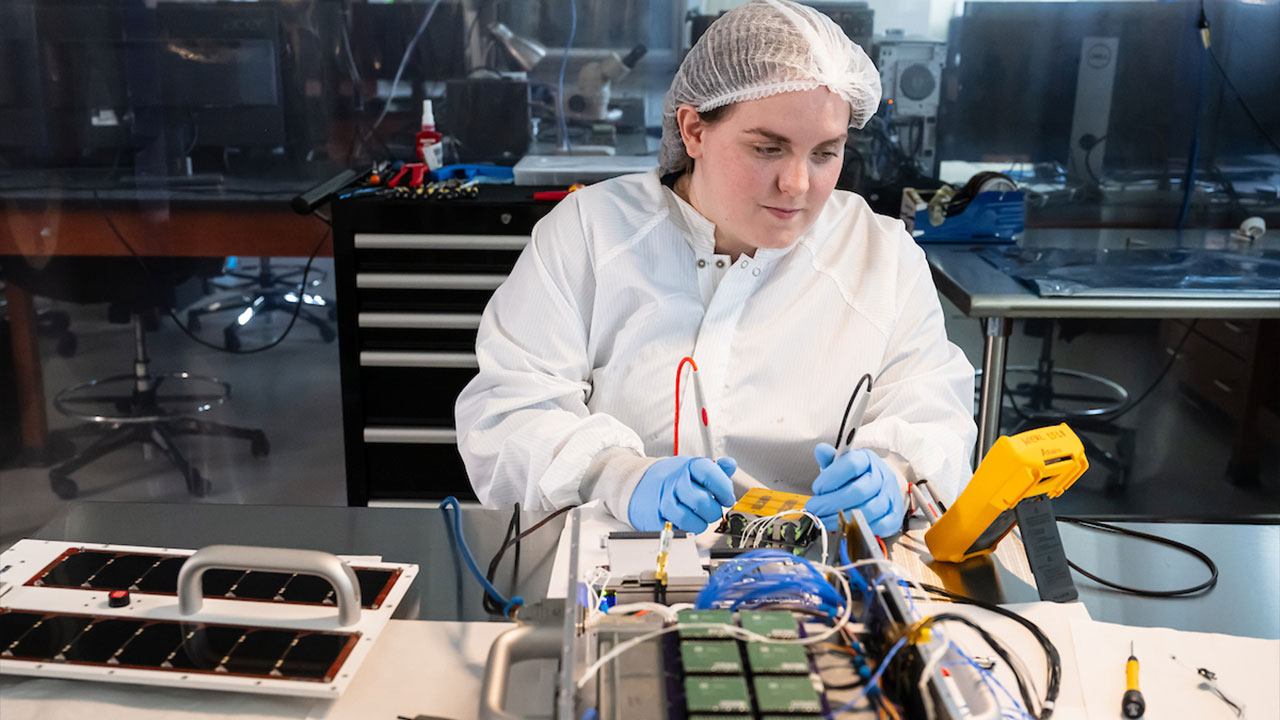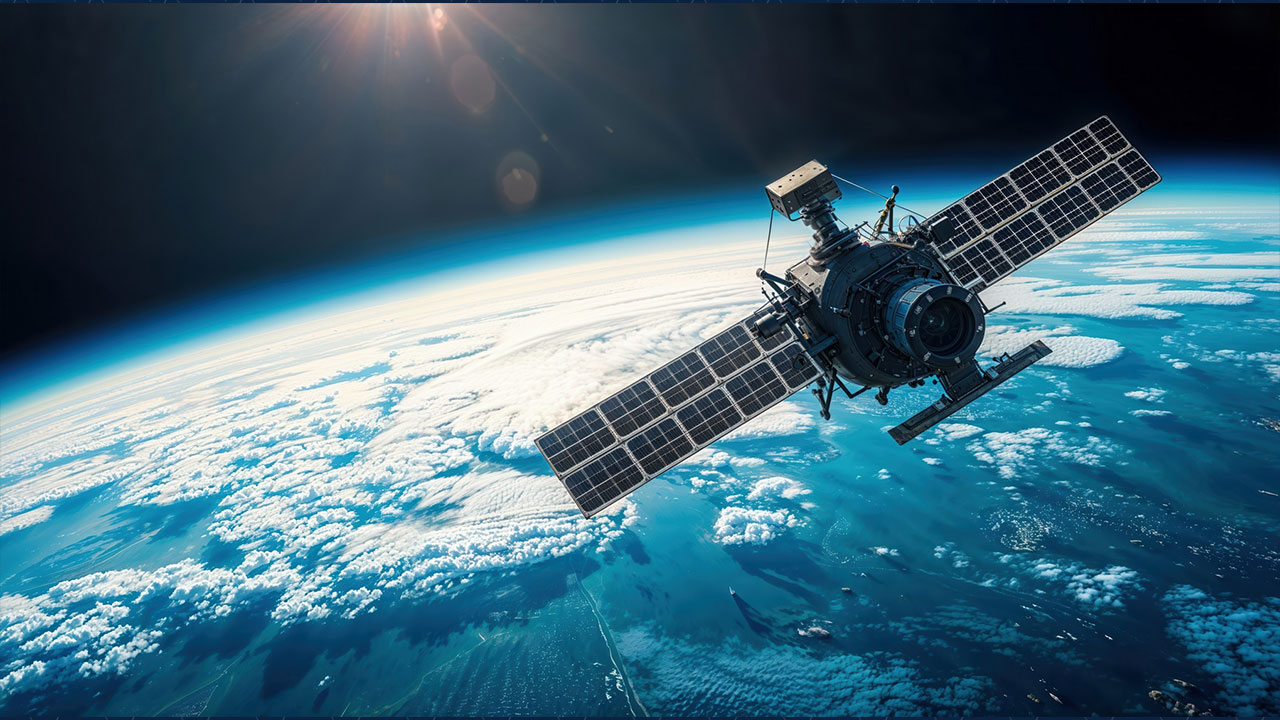content body
Scott Murray, Chase Claborn, James Cannon and Will Royer are among the first to enroll in Auburn’s new graduate certificate in space systems, jointly offered by the Samuel Ginn College of Engineering and College of Sciences and Mathematics.
Each sought to elevate their careers with additional education, but Murray ‘69, Claborn ‘22 and Cannon ‘25 may have a head start as Auburn engineering alumni. Royer has a history degree and yet, he fits.
“You don’t need an engineering degree,” said Department of Aerospace Engineering Chair Brian Thurow. “Someone with a business background, for instance, working in the space sector, can take this sequence to better understand the field.”
Launched this fall, the program is what Engineering Dean Mario Eden calls “another step toward solidifying Auburn as a leader in training space industry professionals.”
Royer, now a defense contractor in Huntsville, Alabama, has found career success without a technical background, but he’s aiming higher.
“With this certificate, and eventually a master’s, I hope to equip myself with the knowledge needed to contribute to the growing space sector,” he said. “I want to lead teams working on cutting-edge space systems, and I can’t do that without furthering my education.”

The Auburn University Small Satellite Program is one example of collaboration between Engineering and Physics.
Team effort
Housed in Aerospace Engineering, the program is three courses taught by faculty from both colleges. Physics Professor Mike Fogle called the partnership a natural fit, noting that “physics is the foundational discipline underlying all of engineering.”
Fogle has been involved in similar collaborations, including the Auburn University Small Satellite Program, which began in COSAM’s Department of Physics in 2001.
Now, under the direction of Fogle and Electrical and Computer Engineering Professor Mark Adams, students are on the front lines of space exploration, designing, building and operating small satellites. Their latest project will voyage to low Earth orbit this fall.
Thurow, Fogle, Associate Professor Davide Guzzetti and Adjunct Professor Craig Whittinghill led the creation of the certificate. Whittinghill, also deputy director for applied research and services for Auburn’s McCrary Institute for Cyber and Critical Infrastructure Security, designed and teaches the first course.
“This program provides foundational knowledge about space systems and explores their applications and impacts on our ever-advancing world,” said Whittinghill, a 29-year Navy veteran.

A new 50,000-square-foot building in Huntsville, Alabama, will allow Auburn to do more with partners in the Rocket City.
A logical step
The certificate’s establishment aligns with Auburn’s expansion in the space industry through innovative research and collaboration with NASA, the Department of Defense (DOD) and private-sector partners.
One such project, aimed at remediating small pieces of orbital debris, earned Aerospace’s Guzzetti a NASA Early Career Faculty award.
This year, Auburn named Derek Tournear, former director of the Space Development Agency, as its inaugural director of space innovation. He reports to Jonathan Pettus, a NASA veteran and executive director of Auburn’s Applied Research Institute (AUARI).
Partnerships and projects accelerated after the Auburn University Research and Innovation Campus opened in Huntsville’s Cummings Research Park in 2022 and AUARI in 2023.
By 2024, growth prompted AUARI’s expansion. The 50,000-square-foot building, opening in February, will accommodate additional partnerships and enable rapid prototyping and rad hardening — ensuring microelectronics can withstand the intense radiation environments of space.
With an $11.4 million DOD contract, the facility’s cyclotron will simulate space radiation for defense system testing. The particle accelerator makes Auburn the only U.S. university with the capacity for high-energy proton radiation testing.
Also at AUARI, a $1.5 million NASA investment will establish the Auburn University Space Manufacturing Initiative, led by Engineering’s Masoud Mahjouri-Samani and Brock Birdsong, AUARI’s director of research.
Filling a gap
As the global space industry grows — and Huntsville prepares to host U.S. Space Command — Auburn is helping meet the demand for a highly trained workforce.
“Our goal is to prepare professionals for this transition into the expanding space sector,” Thurow said.
Fogle emphasized the urgency: “Stakeholders across government and industry highlight the need for broadly trained, interdisciplinary professionals. And that’s exactly what we aim to deliver.”





